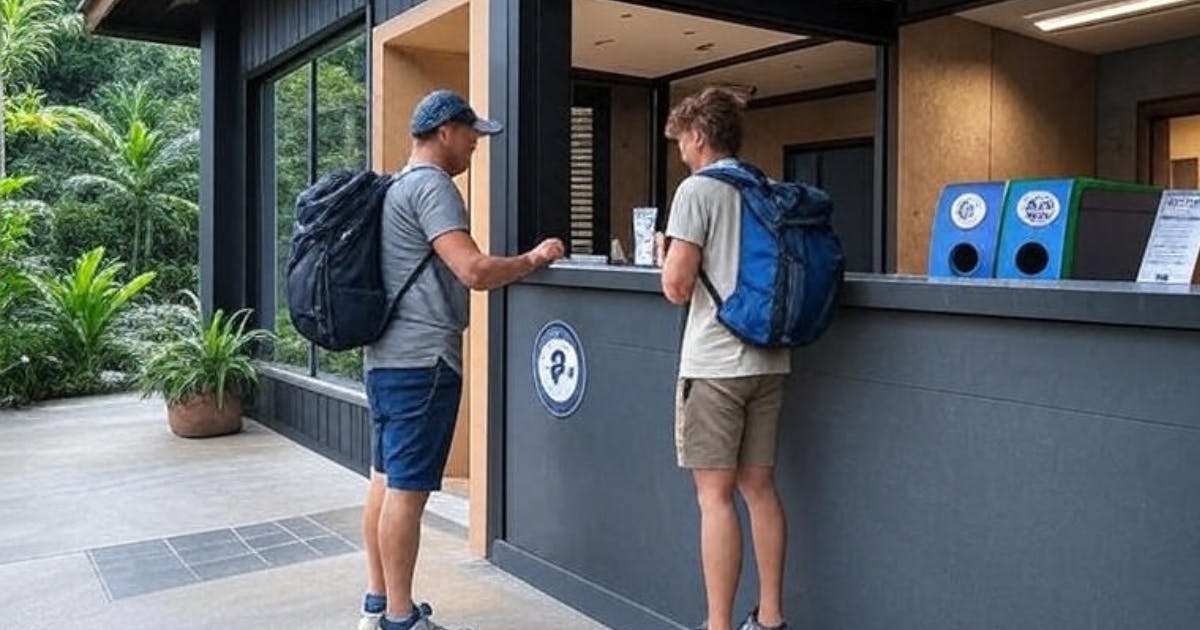Sign up. Be inspired. Get clicking.
Understanding the concept of greenwashing in the context of the tourism sector
Greenwashing in tourism has been a growing issue in the contemporary era. More and more people are consciously looking for environmentally orientated alternatives for their travel experiences. This takes place when organizations proclaim to be ecologically sound but do not take considerable measures that actually benefit sustainability initiatives.
What exactly is greenwashing, to be precise?
Greenwashing is a term used to describe the false pretences made by companies that misleadingly present themselves as environmentally concerned. They might claim to be busy saving the world and ensuring sustainability but, in fact, do nothing to justify these statements. This is especially common in the travel sector, where businesses may make bold statements about being environmentally conscious but do nothing concrete to substantiate such claims.
For example, a hotel might proudly announce that they are sustainable and environmentally compatible and consider themselves green just because they use energy-efficient light bulbs. But they ignore and do not consider the large quantities of water and energy that they use in their daily operations.
Illustrative instances of deceptive environmental practices within the tourism industry
Below are some examples that aptly describe the phenomenon of greenwashing, as it occurs in the tourism industry:
Airlines make environmental claims of being carbon neutral by offsetting emissions, but they rarely offer transparency about the actual approaches and processes they take to attain this objective.
Hotels can say they are ecologically orientated or nature compatible based on one aspect, like the use of energy-efficient light bulbs, but they forget to mention other major environmental factors that are just as pertinent and relevant.
The tour operators commonly call the trips they plan "eco" in character; nonetheless, the trips do not actually benefit the environment or the people living there.
"The term 'greenwashing' was originally coined in the 1980s, during which the idea of environmental responsibility started to take hold. Nowadays, it is a serious problem within the travel sector. Businesses in this industry need to prove, with practical evidence, that their policies and practices are actually environmentally sound and sustainable.

The important and extensive influence of greenwashing on the decision-making processes associated with travel and tourism
Greenwashing has the potential to complicate and obfuscate the travel choices and decisions that travellers make in the following ways:
- It misleads people into thinking that they are making an environmentally compatible choice, while in fact, they are not making any such choice.
- It really discredits and adversely affects the legitimate green programmes and activities being undertaken by other companies and organizations that are seriously attempting to make a change towards environmental sustainability.
- It makes people doubt the truthfulness of green claims, which may discourage them from actively pursuing options for environmentally compatible travel alternatives.
To better manage the problem of greenwashing, travellers need to conduct thorough research and acquire relevant information. They need to actively pursue genuine green certifications, as well as clear and inclusive reports. This way, you are able to successfully find travel choices that are truly sustainable and environmentally conscious.


How to identify greenwashing when making travel reservations
Recognizing greenwashing takes a critical and watchful eye, especially in searching for the different travel choices on the web. With more people becoming aware and worried about the well-being of our planet, the possibility exists that some travel businesses might turn to dishonest methods, falsely presenting themselves as ecologically compatible in an attempt to attract and lure travelers who try to make environmentally compatible travel decisions.
Cautionary signs that you need to watch out for
To successfully avoid falling prey to greenwashing, tourists must be attentive and observant, keeping a close eye on a variety of specific signs. These signs include the following:
- Uncertain terms and common phrases lack significant support in the form of concrete measures or informative content.
- There is a clear lack of transparency and disclosure on the specifics of their sustainability initiatives.
- Certifications or claims that cannot be validated or verified.
Being careful and observant to these particular signs can greatly help tourists make better and more beneficial choices as they move along through their trip.
Researching companies
Carrying out detailed research is crucial to finding travel choices that are actually sustainable and environmentally compatible. Therefore, tourists ought to:
- Spend some time looking at the official websites of different companies to discover extensive and detailed information on their sustainability practices and initiatives.
- We recommend carefully searching for any third-party reports or audits that can substantiate the environmental claims made by these companies.
- It is worth taking the time to read through reviews and testimonials offered by other travelers in an effort to gauge and evaluate the company's genuine dedication to sustainability principles and practices.
Through extensive and thorough research, tourists can better understand a company's true level of commitment to environmental sustainability and its effects on ecological conservation.
Established and reliable certifications
Looking for certifications that can be considered reliable is one surefire way to confirm the claims made by a company. A number of green certification programs are well-known and respected within the industry, and they include:
- ISO 14001 for environmental management.
- EarthCheck for sustainable tourism.
Green Globe is committed to facilitating sustainable practices in the travel and tourism sector.
Such certifications are a distinct and unmistakable indicator that an organization has gone through the intense review process successfully and has also met particular standards set forth for sustainability and environmental responsibility.
Significance and importance of eco-certifications in the tourism sector
Eco-certifications are a vital instrument in ascertaining whether a destination or service truly conforms to environmental sustainability. The certifications help us find places that are truly devoted to taking care of the planet and ensuring sustainable tourism.
Understanding and making sense of certification labels
Numerous different sites and services that meet environmentally compatible rules and practices receive certification labels, demonstrating their dedication to sustainability. These significant and worthy labels are given by credible institutions that perform extensive and comprehensive evaluations, thoroughly reviewing numerous details, such as the quantity of energy used in operations and how the waste is properly disposed of in an environmentally compatible way.
It is very important for those who are traveling to have a complete idea of the meaning of every label they come across. It is also recommended that they look up the particular rules that come with these labels and determine the organizations or authorities that issue them.
Important eco-certifications that one should recognize and know
There are many eco-certifications around the world. Here are some well-known ones:
- LEED, or Leadership in Energy and Environmental Design, is a certification program that focuses on the need to build and preserve buildings that use much less energy and are also designed to be more sustainable and environmentally compatible.
- EarthCheck is a company that assesses different sites to ascertain if they are positive for the environment and follow sustainable practices.
- Green Globe: This certification identifies and supports destinations that meet internationally recognized green standards for environmental sustainability.
- ECOTRUST is a body that issues certifications and labels to companies that are able to fulfil high and demanding standards of environmental sustainability and social responsibility.
The many different constraints there are concerning certifications
Eco-labels can certainly offer numerous benefits; however, they also have their share of disadvantages. The actual standards and rules for acquiring a label can differ considerably from one agency to another. Moreover, some organizations may have stricter standards than others.
Moreover, achieving a label is not a one-time affair that is done once and remains effective for all time. Instead, it calls for many locations to consistently follow the prescriptive rules and regulations over time. However, the frequency of inspections for these sites and the transparency of the evaluation process can vary significantly from one case to another.
Being well-informed about eco-certifications and their respective limitations empowers travellers with the insights necessary to make better-informed and more responsible decisions. In so doing, we can all play a part in making travel a more sustainable activity for generations to come.

The value of customer reviews in identifying greenwashing
The best way to identify greenwashing in travel is to read customer reviews. Insights into a company's green initiative are provided by travellers sharing their experiences.
Real customer input
Genuine customer reviews are essential for identifying greenwashing. Reviews left by travellers can provide insight into the veracity of a business's green claims. In reviews, look for specific instances of green initiatives or shortcomings.
A review that discusses a hotel's actual green initiatives, such as solar panels, is more reliable than one that merely compliments it on its eco-friendliness.
How to tell the difference between genuine and false reviews
Greenwashing can be difficult to identify due to fake reviews. Look for these indicators to distinguish between fake and real:
- Particulars: Genuine reviews provide particular instances or information about their experiences.
- Reliability: Verify whether the reviewer's background aligns with previous reviews.
- Language: Watch out for reviews that use repetitive phrases or excessively promotional language. reviews will hold businesses accountable for their green claims as travel becomes more environmentally compatible.
According to environmental activist Rachel Carson, being truthful and open about your sustainability practices is crucial. Be ready to provide evidence to support any claims you make.
Selecting accommodations that are actually sustainable
Selecting the perfect lodging is essential when organising a trip, as it impacts both the local population and the environment.
Ecologically compatible qualities to consider
Below are a few ecologically sustainable features to consider while selecting accommodations with environmental mindedness:
- Seek locations that showcase their green initiatives.
- They might construct with nature-based materials, use less energy, and produce less waste.
- Energy-saving lights and appliances
- They implement recycling and waste reduction programs.
- Materials sourced sustainably
Emphasising Ecological methods
These days, many places discuss their green commitment. They discuss how they conserve energy, and water, and uphold regional culture.
Eco-Resort Aurora has demonstrated their dedication to lowering its carbon footprint by incorporating sustainable practices and renewable energy sources into their daily operations.
Questions to ask when making a reservation
Ask the right questions to ensure that your stay is environmentally compatible. Enquire about their community support, energy-saving measures, and green policies.
- What steps are you taking to cut back on water and energy use?
- How do you find the supplies and materials you need?
- Do you support any community development initiatives?
The tourism industry is more sustainable when sustainable destinations are chosen and green initiatives are supported.


Making knowledgeable decisions about transportation
Understanding how various modes of transport affect the environment is the first step towards sustainable travel. People are looking for greener travel options as they grow more conscious of the environment.
Evaluating the effects of transportation options on the environment
Our travel habits have a significant impact on the environment. The amount of greenhouse gases released varies depending on the mode of transportation. For instance, trains are more environmentally compatible than aeroplanes, which are a major source of carbon emissions. The aviation sector contributes about 2.5% of carbon emissions worldwide, which points to the importance of more efficient flight paths and sustainable aviation fuels.
The international air transport asociation is the source.
Consider the carbon footprint of each option when choosing a mode of transportation. Here's a brief look:
- Flying has high emissions, but it is often necessary for long-distance travel.
- Reduced emissions make rail travel ideal for shorter distances or areas with a high train frequency.
- Electric cars or carpooling can be more environmentally compatible than standard car rentals, depending on the number of users involved.
Low-impact airline and ground transportation
By using sustainable fuels and optimising their fuel usage, some airlines are attempting to reduce their environmental impact. Select airlines that are environmentally conscious.
Greener options are also available for ground transportation, such as electric or hybrid buses and trains. To make a significant impact, check these out before making your reservation.
Verdant travel advice
Try the following suggestions to reduce your carbon footprint when you travel:
- Invest in carbon offset projects to offset your carbon emissions.
- If at all possible, take direct flights to save fuel.
- Whenever possible, take the bus, walk, or ride your bike.
- Carry as little fuel as possible.
We can significantly reduce our environmental impact by making sensible travel choices. As the travel industry evolves, minimising the ecological impact of tourism will require a focus on sustainable transportation.
Sustainable travel's future
Sustainable travel has a bright future. It entails using technology to make travel more environmentally compatible and staying up to date with low-impact travel trends. People want to travel responsibly as their concern for the environment grows.
New developments
Sustainable travel is evolving due to new trends. Local experiences, carbon offsetting, and low-impact lodging are growing in popularity. Nowadays, tourists seek out destinations and tours that show concern for the environment and local communities.
The function of technology
In order to make travel more environmentally compatible, technology is essential. Emerging concepts include low-impact transportation, green aviation fuels, and digital tour platforms. These help travellers make wiser decisions.
Promoting change
It's critical to advocate for reform in the travel sector. Governments, tour companies, and tourists must cooperate. We can make travel more sustainable in the future by advocating for green travel and demanding higher environmental standards.
17 South Street
Auckland 1010
New Zealand
info@carbonclick.com- -
- X
Subscribe now to stay up to date with CarbonClick, carbon offsetting and climate action.
By signing up you agree to our Privacy Policy.


